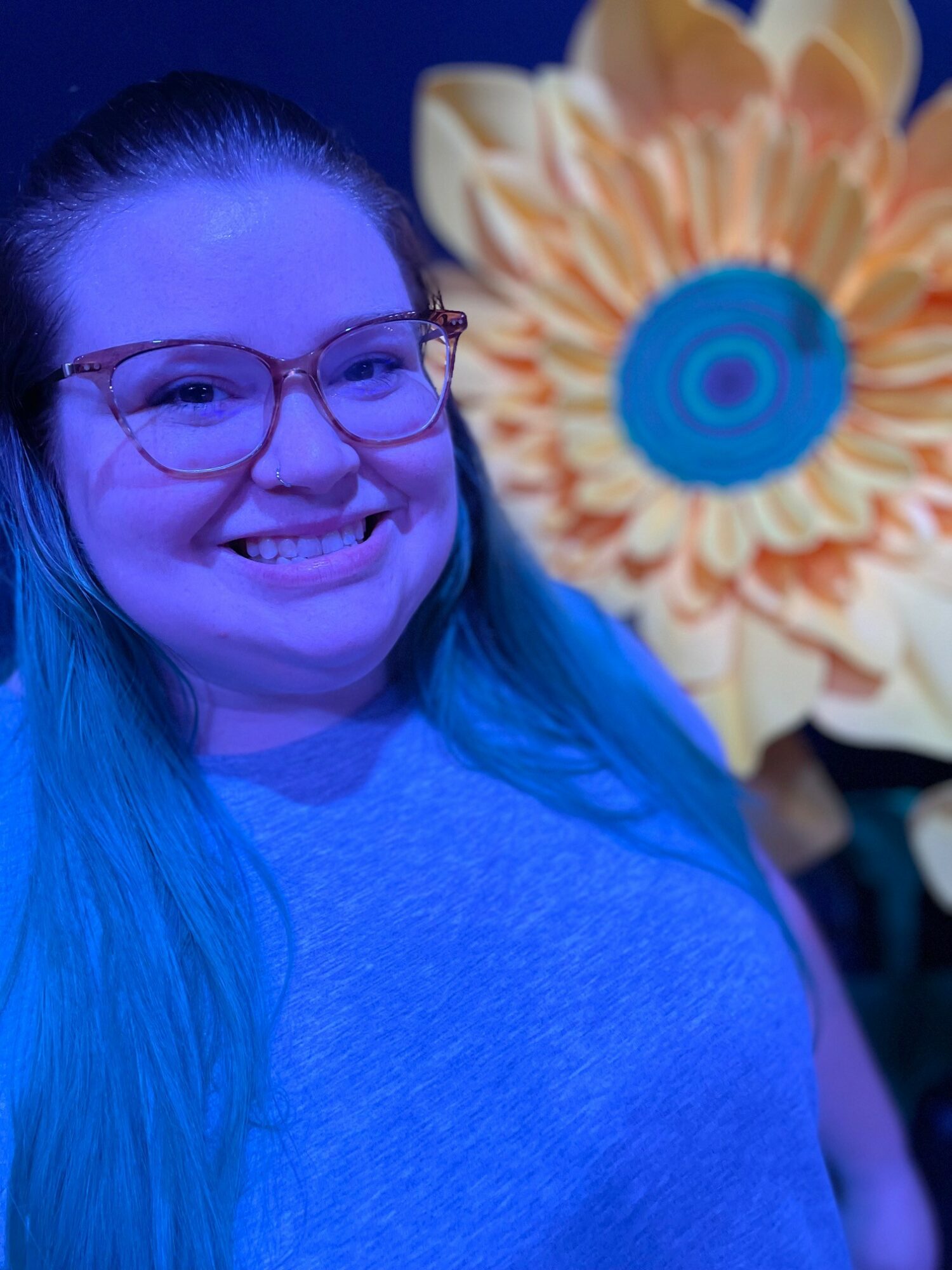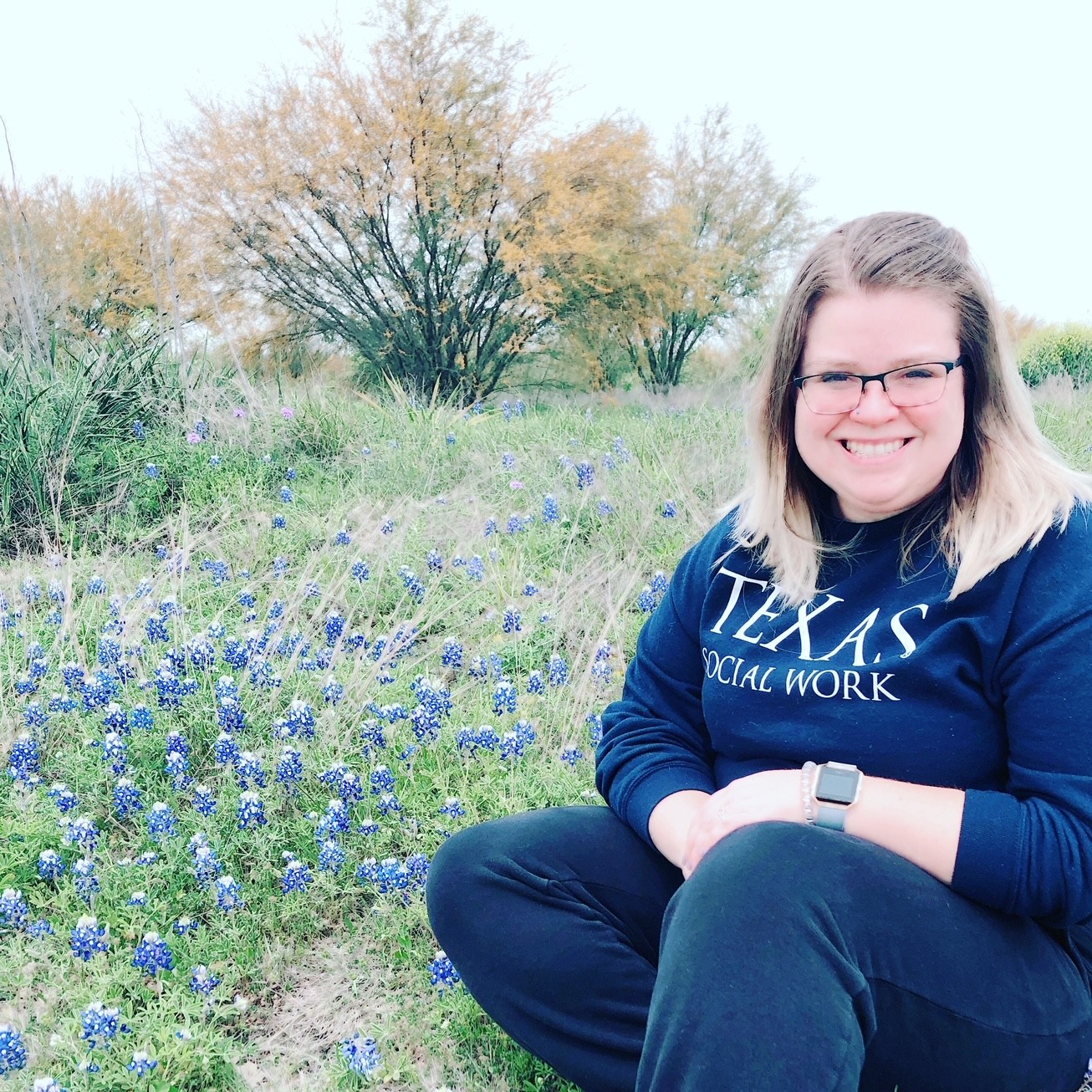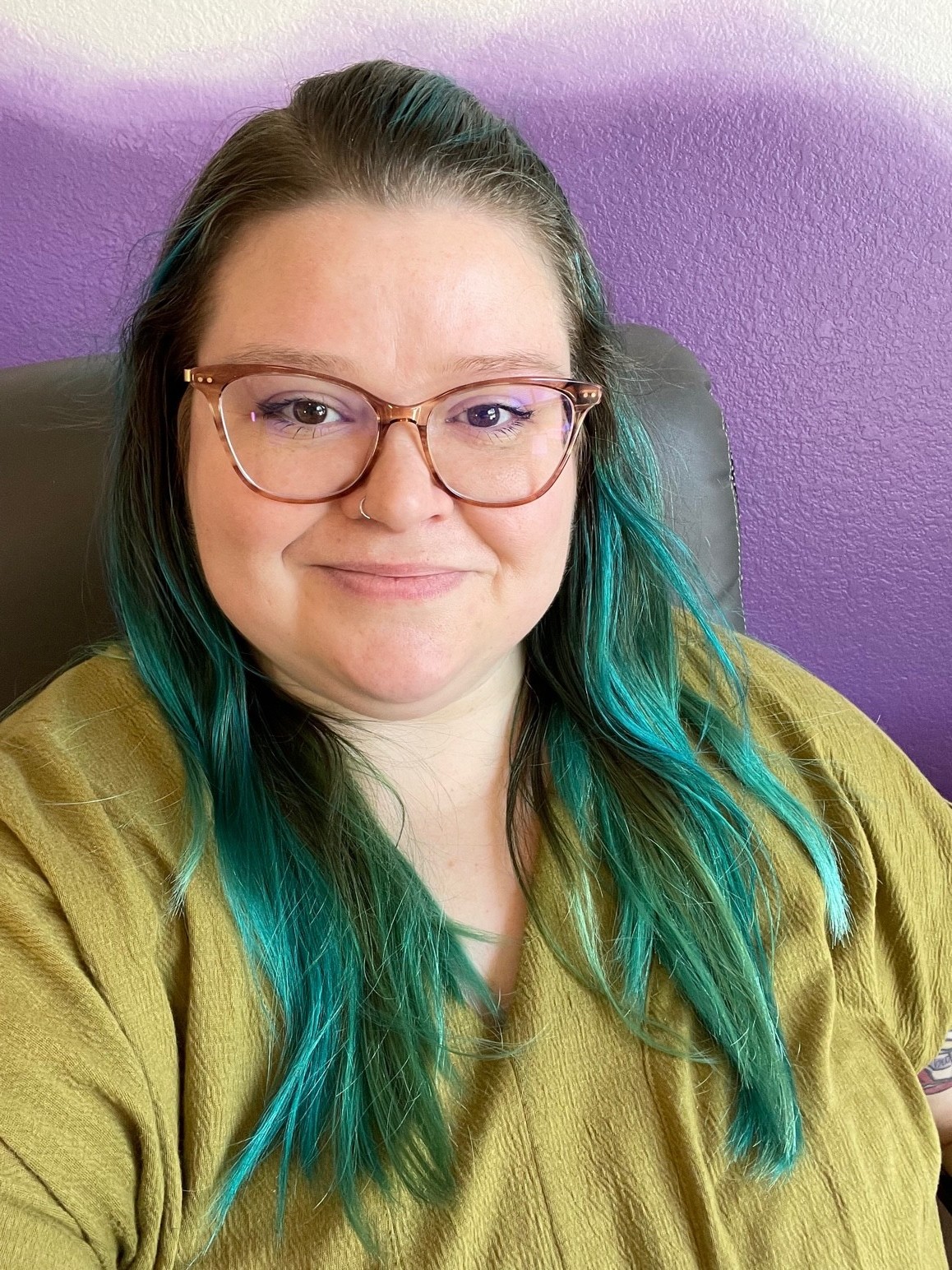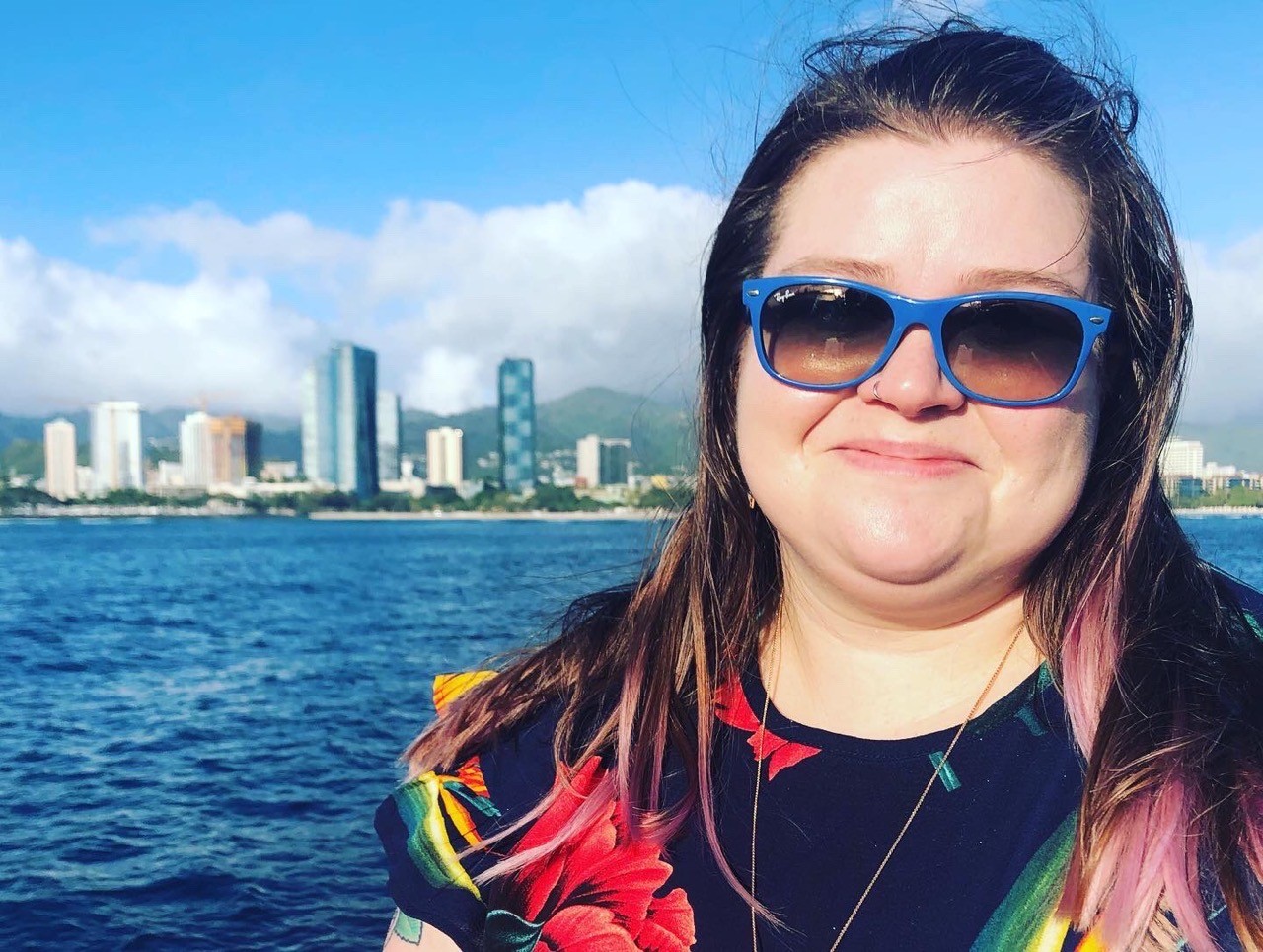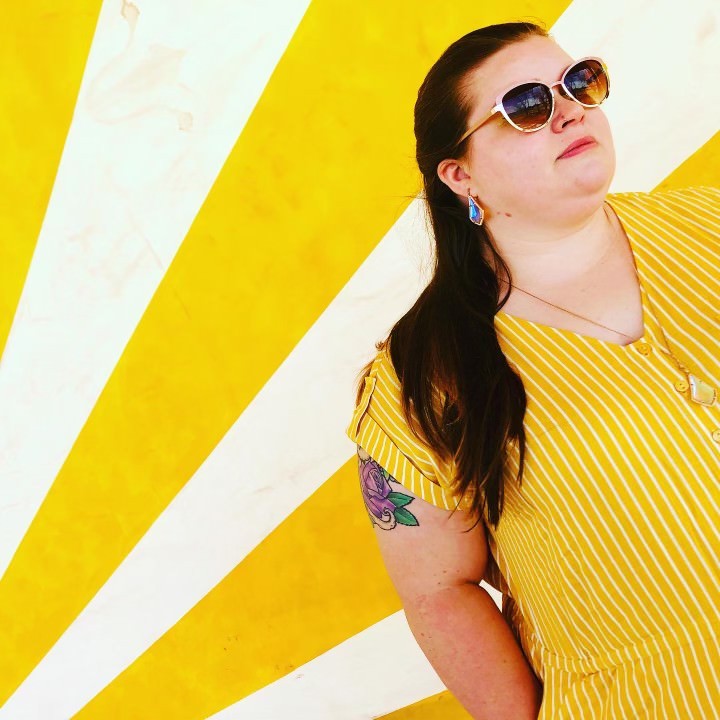

Today we’d like to introduce you to Erica Heller, LCSW, LCDC (she/her).
Hi Erica, we’re thrilled to have a chance to learn your story today. So, before we get into specifics, maybe you can briefly walk us through how you got to where you are today?
Where to start?! I was born and raised in Texas and grew up in the Rio Grande Valley. I went to undergrad in San Antonio and pursued a degree in Art and Environmental Entrepreneurship with the intention of going into Environmental Law or Consulting. During this time, I also became really involved in extracurricular activities at school from volunteer coordination to working in the theater to environmental and social justice activism. As I graduated and was still unsure of my next steps, I learned about AmeriCorps. I was familiar with the Peace Corps which send folks internationally to help with infrastructure and efforts in other countries. Knowing that the U.S. has a tumultuous past (and present) with economic and racial injustice and disparity, I felt drawn to staying in the U.S. and learning more about how to make a career out of making myself useful to others here.
I was actually waitlisted three times before I was accepted into AmeriCorps and had a short amount of time to move across the country to Washington, D.C. where I did not know a single person and had only visited for school conferences. My thinking at the time was that I wanted to do policy work and I figured D.C. was the place to learn more about what that actually meant. I completed a year with City Year and did a second year of AmeriCorps with Public Allies in Washington, D.C. My time with City Year was unique in the sense that I worked on a team that planned and executed community service projects around the city. My following year with Public Allies, I was a volunteer coordinator with a computer literacy non-profit and taught basic computer skills for free around the city. I also managed and trained the other volunteer teachers we had with our organization. During my time in D.C. I learned more about other careers involved in social justice and advocacy and decided I wanted to pursue social work, a career path that allowed for flexibility in the type of work I could do and where I could do it. I applied to graduate schools across the country and ultimately returned to Texas to attend UT Austin for their social work program.
I graduated with my Masters of Science in Social Work in August 2015. From there, I’ve had a variety of jobs doing case management, group therapy, individual therapy, and working in a behavioral health and substance use treatment facility. For those that don’t know, the way licensure for social workers in Texas works is that we graduate with our degree and take a licensing exam to become an LMSW (Licensed Master Social Worker). There are lots of job options with this level of licensure, however if you want to do clinical work (such as therapy, working in a hospital or clinical type of setting) you must pursue licensure toward an LCSW (Licensed Clinical Social Worker) through supervision with an existing LCSW-Supervisor. This requires 3000 hours of direct work and weekly supervision and consultation. I completed my LCSW (full licensure) in January 2021. With the state of things on a global and public health level, and with my job at that time, it was a natural decision to make the move to solo private practice and Heartlines Counseling became official in February 2021.
Alright, so let’s dig a little deeper into the story – has it been an easy path overall and if not, what were the challenges you’ve had to overcome?
A lot of people in a helping profession end up here for personal reasons, this was certainly the case for me. My time in graduate school and beyond has been a time of excitement and hope, mixed with a lot of uncertainty and difficulty. As someone who is a supporter of therapy for anyone and everyone, I’ve been in my own therapy a majority of my life. My time in graduate school, I joke with others as being “the most expensive form of therapy” because you have to work on yourself to get through a rigorous grad school program designed to present challenges and make you face your own trauma and obstacles.
A situation unique to my experience in graduate school was the realization that I had an issue with substances (drugs and alcohol) and making the decision to commit to my own mental and physical health and wellbeing by committing to recovery. This looks different for everyone, and I truly believe in a harm reduction philosophy when it comes to any type of coping strategy. In this case, my recovery means total abstinence from drugs and alcohol. I can now say I’ve been sober for several years thanks to the support of my family, chosen family, friends, partner, and communities.
We’ve been impressed with Heartlines Counseling, PLLC, but for folks who might not be as familiar, what can you share with them about what you do and what sets you apart from others?
I started Heartlines during the pandemic and chose the name from a Florence + The Machine song that was an important part of my young adulthood. I identify as queer and work with lots of folx who also identify within the 2SLGBQIA+ and trans and gender-expansive communities. Self-compassion is central to my work and the importance of a mutually trusting and respectful therapeutic relationship. I have worked with adolescents and teens in the past, however I am focusing more on adults at this time and no longer taking on anyone under 18.
I work from a relational and attachment framework and incorporate a lot of strengths-based, harm reduction approaches in my work with folx. Along with being an LCSW, I am also an LCDC (Licensed Chemical Dependency Counselor). This has helped me better understand different ways to support folks with substance use and/or experimentation. In addition, I have a background in eating disorders, body image, depression, anxiety, and chronic illness. My background provides a lens for me to approach my work with folks around how our internal and external worlds impact our various identities, whether that be sexuality, gender, body and fat positivity, etc.
I’m most proud of the fact that I created and managed my own website and have an eclectic background that can be useful to my work with people with varying interests. I try to bring in creative components when I can. Anyone who has had a session or Zoom with me will know that my purple background in my home office (as I’m currently only providing telehealth) was painted by me.
What sort of changes are you expecting over the next 5-10 years?
I suspect that as the world has been forced to shift, essentially overnight, during the past few years we will only continue to learn more about the impacts that has had on people from a mental health perspective. In addition, as our healthcare system works to catch up to paying doctors and practitioners a living wage, I anticipate seeing more and more therapists moving from insurance-based to Out of Network or private pay.
Pricing:
- $140 for 50 minute individual session
- $200 for 80 minute individual session
- $140 for 50 minute assessment for gender affirming procedures
- $50+ (pay what you can) for letter of support for gender affirming procedures
Contact Info:
- Email: erica@heartlinescounseling.com
- Website: www.heartlinescounseling.com
- Instagram: @heartlinescounseling
